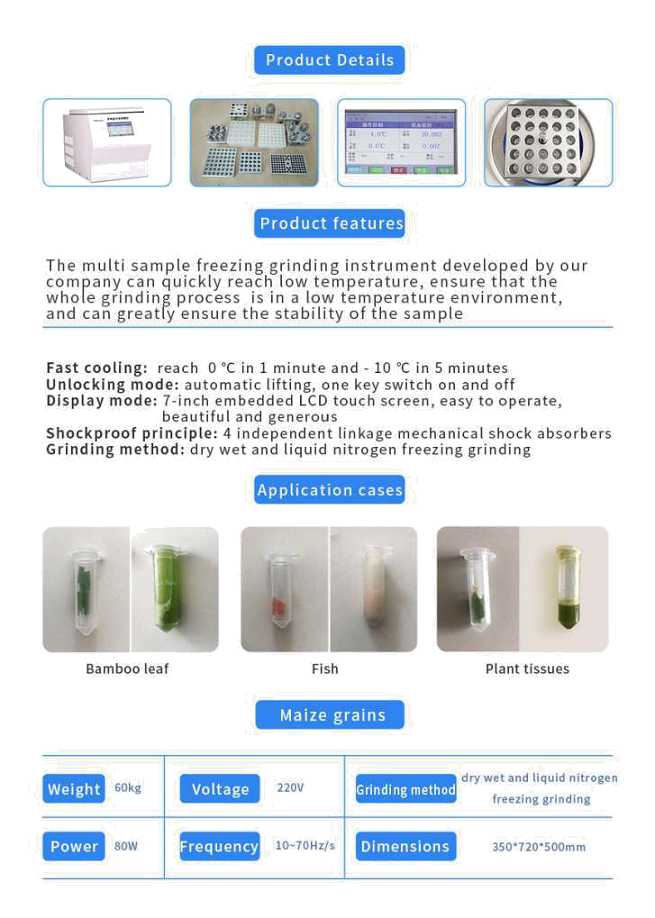Multi-sample Freezing Grinder NB-96C
Features
The multi-sample freezing grinder developed by our company can quickly reach low temperature, ensuring that the sample is in a low temperature environment during the entire grinding process, which can greatly ensure the stability of the sample
Fast cooling: Imported compressor, reaching below 0°C in 1 minute; reaching -10°C in 5 minutes
Unlocking method: automatic lifting, one key switch
Display mode: 7-inch embedded LCD touch screen, easy to operate, beautiful and generous
Anti-vibration principle: 4 independent linkage mechanical shock absorbers
Grinding method: dry grinding, wet grinding, liquid nitrogen freezing
Technical parameter
Display mode: touch LCD screen
Working mode: up and down vibration, three-dimensional movement mode grinding
*Processing sample volume: 24-96*2ml; 16*(5-15ml) samples, 1-96 samples can be freely selected;
Homogenizing speed: 10-70 HZ/sec
*Shockproof principle: 4 independent linkage mechanical shock absorbers
Adapter material: Teflon
Grinding method: wet grinding, dry grinding and low temperature grinding are all available
Maximum feed size: no requirement, adjust according to adapter
Final output particle size: ~5μm
Number of grinding platforms (acceptable number of grinding tanks)> 2
Fastening device with automatic center positioning Yes
Safety lock during work, full protection
Grinding kit material Hard rigid, PTFE (Teflon)
Power supply: Two-phase 220V/50HZ
Working time: 0 seconds -99 minutes, users can set by themselves;
Diameter of grinding ball: 0.1-30mm
Grinding ball materials: alloy steel, chromium steel, zirconia, tungsten carbide, quartz sand;
Acceleration: Reach the maximum speed within 2 seconds
Deceleration: Reach the lowest speed within 2 seconds
Noise level: <50db
|
Technical parameter |
|
Weight:60kg |
Voltage:360V |
Grinding method:Wet grinding / dry grinding / low temperature liquid nitrogen |
|
Power: 80 |
Frequency:10-70 HZ/sec |
Dimensions: 35*72*50cm |
*Imported compressor refrigeration: It can reach below 0° within 5 minutes, and the lowest can reach -30°. Sample processing under low temperature conditions can ensure the stability of the sample and prevent degradation.


